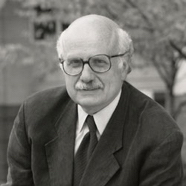Congress Is Very Close To Finally Closing A Dangerous Election Law Loophole
Fred Wertheimer’s Weekly Note | December 15, 2022
 The Electoral Count Reform Act (ECRA) is essential legislation that would close a dangerous loophole in the 19th-century Electoral Count Act. The loophole would permit a state legislature to replace the presidential electors chosen by the state’s voters on Election Day with the choice of the legislature.
The Electoral Count Reform Act (ECRA) is essential legislation that would close a dangerous loophole in the 19th-century Electoral Count Act. The loophole would permit a state legislature to replace the presidential electors chosen by the state’s voters on Election Day with the choice of the legislature.
That Electoral Count Act loophole was part of the scheme that former President Donald Trump unsuccessfully tried to use to overturn the 2020 presidential election.
Democracy 21 started working in the summer of 2021 with the late legendary constitutional scholar and advocate Walter Dellinger on solving this problem. Dellinger had identified the potential dangers of the loophole in 2020 when he was serving as one of three former Solicitors General representing Joe Biden to defend against Trump efforts to overturn the presidential election.
The existing problem works this way.
Under the Constitution, state legislatures are empowered to determine the manner in which presidential electors are chosen in their states. Since 1864, every state legislature has delegated this choice of electors to the voters. It is politically untenable for a state to change this.
The Constitution empowers the U.S. Congress to determine when the choice of presidential electors takes place. Congress has exercised this power by establishing that presidential electors will be chosen on the first Tuesday after the first Monday in November – Election Day.
Thus, under the Constitution and federal law, state legislatures have no authority to replace the electors chosen by the voters on Election Day with their own presidential electors chosen after Election Day.
For that reason, Moore v. Harper, that was argued in the Supreme Court last week, does not pose a threat of allowing state legislatures to override the choice of the voters for presidential electors. Because even if the Court misguidedly accepts the radical “independent state legislature” theory that has been raised by the case, this would not allow state legislatures to violate federal law by choosing new presidential electors after the Election Day date set by Congress.
This brings us back to the dangerous loophole in the existing Electoral Count Act. That loophole says that if voters in a state “fail” to make a choice of presidential electors on Election Day, the state legislature can make that choice.
This exception was intended to deal with the difficulties of 19th-century voters getting to the polls on Election Day because of extreme weather or other types of natural disasters.
But the loophole leaves room for a state legislature to simply claim without any evidence that widespread fraud occurred and, because of that claimed fraud, voters failed to make a choice on Election Day. The state legislature could then invoke the provision in the Electoral Count Act and choose their own electors.
The Electoral Count Reform Act eliminates this loophole by narrowly defining “failed” to make a choice to be limited to extreme force majeure such as an earthquake, flood, or other natural disaster. But even in such circumstances, the ECRA does not provide for the state legislature to step in and choose the electors. Instead, it would require the presidential election in that state to take place at a later date.
The ECRA includes additional provisions to prevent a repeat of the Trump attempt to steal the presidential election. These additional reforms are very important, but eliminating the “failed choice” loophole is the most urgent reform.
The ECRA will go a long way to prevent any future attempt to steal a presidential election.
The House passed legislation similar to the ECRA in September. In the Senate, Majority Leader Chuck Schumer and Republican Leader Mitch McConnell are cosponsors of the bipartisan ECRA legislation introduced by Senator Amy Klobuchar. There are 16 Republican sponsors of the bill.
In these final days of the 117th Congress, the House and Senate are racing to complete and enact a massive omnibus spending bill to fund the government through September 2023. Senator Schumer announced on Tuesday that the ECRA will be included in the final omnibus measure.
The ECRA is now headed for enactment, provided the omnibus is enacted.
________________________
Fred’s Weekly Note appears each Thursday in Wertheimer’s Political Report, a Democracy 21 newsletter. Read this week’s and other recent newsletters here. And, subscribe for free here and receive your copy each week via email.